Cargando...
Recursos educativos
-
Nivel educativo
-
Competencias
-
Tipología
-
Idioma
-
Tipo de medio
-
Tipo de actividad
-
Destinatarios
-
Tipo de audiencia
-
Creador
Lo más buscado
- Posibilidades expresivas del cuerpo
- Carga positiva
- Descargar ejercicios de quimica
- Repaso de biología
- Astros del planeta tierra
- Música afrocubana
- Ejercicios de inglés quinto primaria
- Instrumentos de madera
- Plantillas de letras
- Guía del cómic
- Aprender a reciclar
- Historia de Euskal Herria
- Juegos matemáticos
- Sonidos de animales
- Cuentos cortos para dormir
-
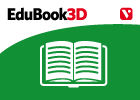
Summaries - Art in the 19th century
EduBook Organización
- 3734 visitas
1. Art at the end of the 18th century Rococo art first appeared in France in the 18th century and later spread throughout Europe. Rococo architecture was modelled on the Baroque style and was used in…
-
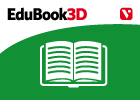
India: the jewel of the British Empire - The age of imperialism
EduBook Organización
- 1 lo usan
- 2985 visitas
In the 16th century, almost all of India and Pakistan formed part of the Mogul empire. In the 17th century, Great Britain and Holland obtained permission to trade on a coastal section of the Indian…
-

Complete. The exploitation of India
EduBook Organización
- 2973 visitas
Complete the following sentences with the missing words: British with India began in the hands of a private company, the East India Company. Great Britain imported many different materials from India…
-

True / False. The rotation of the Earth
EduBook Organización
- 2960 visitas
Answer true or false: In the morning the Sun rises in the west. The succession of days and nights makes life on Earth possible. The Earth rotates from east to west. The Sun reaches its highest point…
-
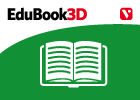
The Neolithic Age: food production
EduBook Organización
- 2756 visitas
About 10000 years ago, people began producing their own food. This happened in an area of the Middle East known as the Fertile Crescent. This new age is called the Neolithic Age. 3.1. Agriculture and…
-
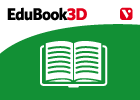
Directions - Landscapes
EduBook Organización
- 2717 visitas
The cardinal points The cardinal points can help you find out where you are. The main points are north (N), south (S), east (E) and west (W). If you know where one of the points is, it is easy to find…
-
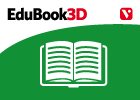
Pre-Roman peoples: the Iberians and the Celts
EduBook Organización
- 2614 visitas
1.1. The Iberians From the middle of the 6th century BC, the Iberians became established in the east and south of the Peninsula. They developed close relations with the colonisers from other parts of…
-
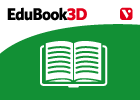
Unit 6: The age of imperialism
EduBook Organización
- 2431 visitas
Acculturation (n): adoption of the ways of a different culture. agricultural products (n): things that are grown in large quantities to be sold. balance of trade (n): the difference in value between a…
-
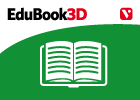
The liberal revolution (1833-1843)
EduBook Organización
- 2337 visitas
4.1. The first Carlist War (1833-1839) Ferdinand VII's death in 1833 marked the beginning of the Spanish Civil War, which lasted until 1839. During this time, the Carlist absolutists fought the…
-
Choose. The German national socialist ideology
EduBook Organización
- 2286 visitas
Identify whether the sentences refer to German or Italian fascism: Promise to create an empire controlling the Mediterranean. Defence of anti-Semitism, the superiority of the Aryan race and the need to…
Te estamos redirigiendo a la ficha del libro...












